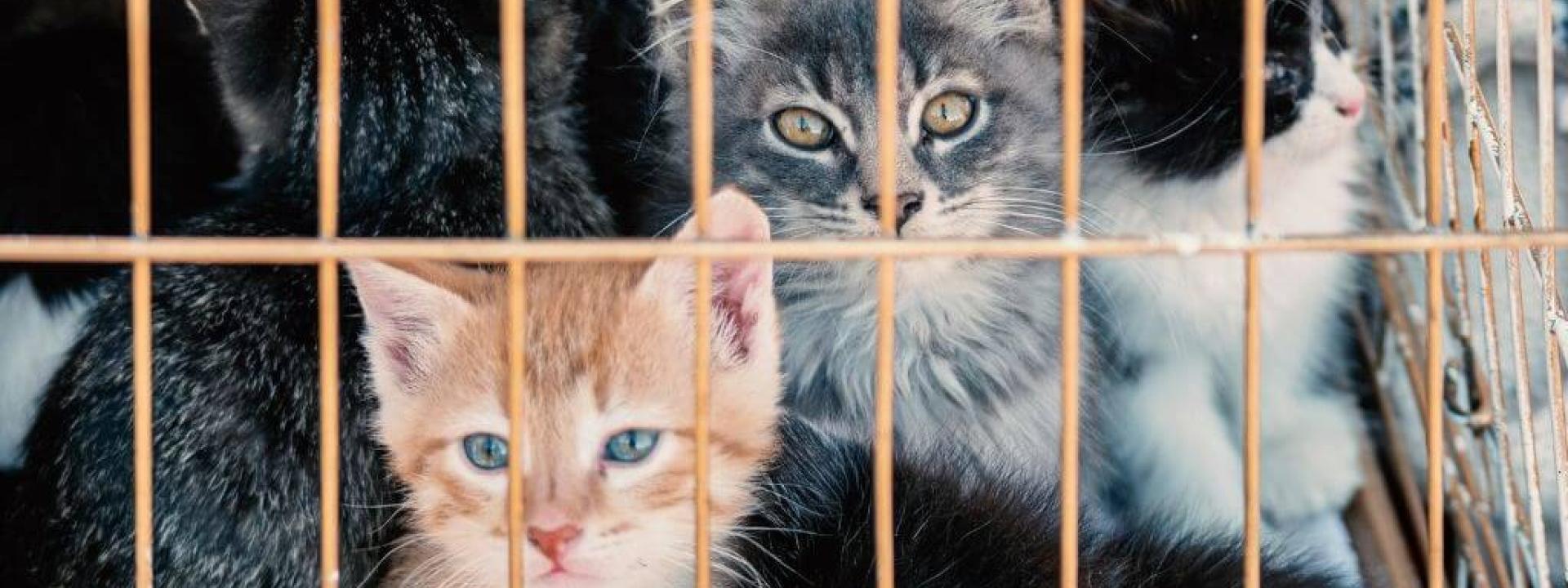Americans celebrate National Adopt A Shelter Pet Day on April 30th to raise awareness about the millions of companion animals living in shelters while awaiting their forever homes. It’s a great day to add a new furry friend to your family or spend some time volunteering at a local animal shelter, too. Over the years, you’ve probably heard a lot of myths about shelter pets. As veterinarians, we’re here to separate fact from fiction. In this blog post, we’ll be debunking a few of the most common myths about shelter pets. In doing so, we hope to encourage you to consider adopting when you are ready to become a pet owner or bring home an additional four-legged family member. Keep reading to learn more.
Myth #1: Shelter Pets Are Damaged Goods
Many folks assume that animals who end up in shelters must have some sort of damage. After all, why would anyone surrender a perfectly good pet to a shelter? In reality, people give up animals for many reasons. Sometimes, they have allergies or personal issues. They might be going through a divorce or moving somewhere that doesn’t allow pets. Not having the money to afford a pet’s care is another common reason for surrender.
In many situations, dogs, cats, and other pets end up in shelters at no fault of their own. Most are perfectly adoptable and far from “damaged.” They may need some extra training, but with love and patience, most of the animals in shelters are worthy pets.
Myth #2: Shelter Animals Are Often Sick
While it’s true that shelters take in pets with health issues, they address those problems before putting an animal up for adoption. Shelters go to great lengths to care for pets and provide appropriate treatment for illnesses.
Depending on the shelter, pets often get the following done during their time there (if needed):
If an animal has a chronic disease, like diabetes, the shelter will make sure they are stable and provide information about their health before adoption. No shelter knowingly adopts out sick animals — especially without notifying potential adopters.
Myth #3: Shelter Dogs Are Aggressive
It’s a common misconception that most dogs end up in shelters for displaying aggressive behavior. Sure, there are some aggressive dogs in shelters. But they certainly do not make up the majority of a shelter’s population. If a dog does have any behavioral problems, shelter employees will make potential adopters aware of such issues before adoption.

Myth #4: You Can’t Find Purebred Animal in Shelters
Surprisingly, this is entirely untrue. According to numerous studies, around 25% of the dogs and cats in shelters are purebreds. There are countless breed-specific rescue groups and shelters spread throughout the nation. Finding a specific breed to adopt might take more time than buying a pet from a breeder, but it’s well worth the effort when you get the breed you want and get to make a difference in an animal’s life.
Myth #5: Shelters Only Have Dogs and Cats
It’s true that some shelters only have dogs and cats. However, there are many others where you can adopt just about any type of pet imaginable, including birds, rabbits, guinea pigs, and more. There are even pig and horse rescues if you’re looking to add this type of animal to your family.
Myth #6: Buying From a Breeder Is Safer Because of Bloodlines
People often go to breeders to get purebred animals and avoid getting a pet with aggression issues. While bloodlines and medical histories are useful tools for evaluating pets, they have very little value in predicting behavior or potential health problems. According to the ASPCA, purebred animals are often predisposed to certain medical issues. Genetic disorders are also common among purebreds.
Myth #7: If You Adopt an Older Pet, They Won’t Bond
There is no correlation between an animal’s age and their ability to bond with their owners and other household pets. Adopting a senior pet offers numerous benefits, and there’s no need to worry about their ability to bond. Senior cats and dogs show just as much love and affection as their younger counterparts. In this case, age is just a number.
Myth #8: Shelter Pets Are Dirty
It’s common for pets entering shelters to look a bit dirty or scraggly. After a bath, haircut (if needed), medication, and vaccinations, though, they look and feel much better. All shelters check pets for external parasites and provide flea treatments as needed. Most shelters offer at least basic grooming services regularly to maintain pets’ coats, nails, etc. Sometimes, professional groomers even donate their services to help pets look their best, so they’re more likely to find forever homes.
Additionally, shelter cats aren’t any more likely to be “dirty” in terms of not using a litter box than a cat you buy from a breeder. An underlying health or behavioral problem usually causes litterbox avoidance.
Conclusion
This Adopt A Shelter Pet Day, consider adding a new furry friend to your family. Shelter pets have a lot of love to offer, and you’ll feel great knowing that you helped an animal in need. If you decide to open up your heart and home to a shelter pet, we are here for you. Give us a call to schedule their first exam.

